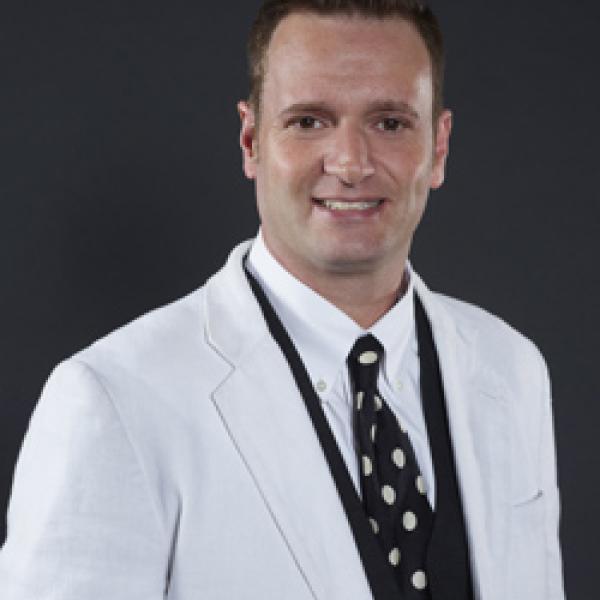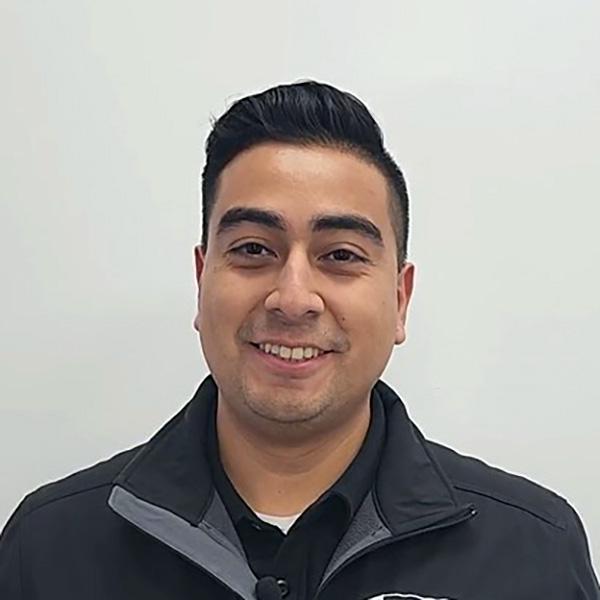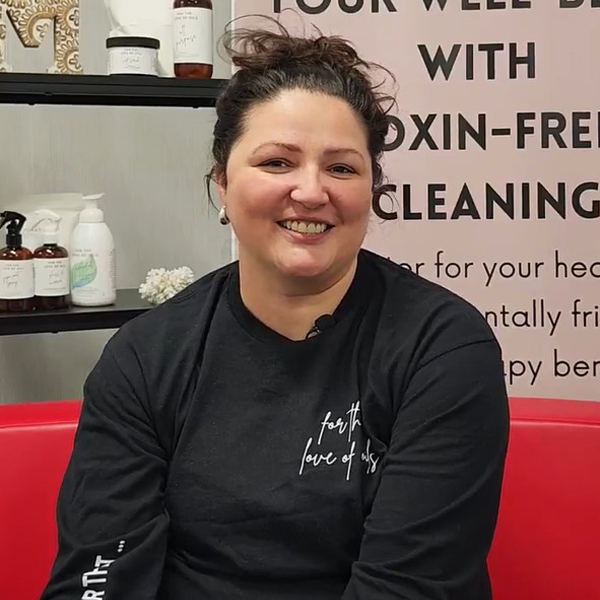
Alumni of Distinction
Marco Felvus
Committed to Mohawk and the greater community, Marco Felvus has focused on connecting with and providing at-risk and marginalized youth with support at Mohawk and in the community. Marco has been involved with Youth Net, an innovative project in Hamilton with the goal to promote mental health and early intervention program for youth ages 13 to 18. He is also a collaborator to CURA (Hamilton’s community-university research alliance for the prevention of bullying). As an educator and a strong member of the Mohawk community, Marco also seeks to enhance his student’s learning experiences outside of the classroom. He has done this by bringing a New York Times best-selling author to speak at Mohawk, and for the past few years organizing “Day of Pink” activities on-campus which focus on raising awareness about homophobia.
What was the #1 reason you chose to attend Mohawk?
As a first generation post secondary student Mohawk seemed the obvious choice solely due to it's physical location. When I moved to Hamilton, from Grassie in the Niagara area, I eventually realized how outstanding the program I had chosen was. The program was known on a provincial and national level. I learned that I was part of something huge. At age 19 after completing only one year of the Child and Youth Worker (CYW) Program I learned how valued the program was when accepting a full time position with the Hamilton District School Board. Later I decided to further my studies at Mohawk with an Art and Design course and finished the CYW Program through the part time delivery. Looking back, I found a home at Mohawk where the staff and services supported me in most aspects of my life. Mohawk taught me how to be professional, analytical, responsible and above all gave me the tools I needed to further my education and career.
Mohawk also helped me to discover myself and the potential I had to help others discover themselves, whether it was by being a mentor to youth involved with the streets, supporting youth when they were expelled from school, or now supporting College students as they discover their own potential to start a career within Human Services. Mohawk helped me see myself aside from the sheltered life I experienced growing up.
In my role as Coordinator of Mohawk College's positive space called Social Inc. (Centre for Social Inclusion), I see aspects of myself in many of the students that walk through the doors wanting to understand and come to terms with parts of themselves they prefer to ignore. Moving away from your family and coming to college often pushes us toward aspects in our life which we are uncomfortable with. I was thankful to attend a College that supported me with these challenges inside and outside of the classroom.
What is 1 piece of advice you’ve received in the past has stuck with you to this day?
"Believe nothing you hear and only half of what you see" My former school bus driver Mrs. Joy Mckinny told me this. Although I now know that she didn't mean this in the literal sense, it has stuck with me because these words make me want to be sure of what I hear and see.
Evidence based practice means you proceed with evidence that what you are doing makes an impact. I am glad Mohawk taught me how to research and test what I thought I knew and supported me with new methods of intervening with children and youth that support best practices. A big part of belonging to a profession is having the knowledge to support your role. Instead of doing something because it "seems" right, I like to challenge myself to test what I see and hear in order to best serve the people I work with.
If you could go back in time, what 1 piece of advice would you give to yourself on the first day of College?
Simply "Do You". I came out as gay late in life and now that I have developed pride in this aspect of who I am, I can't help but think that it kept me from "doing me" for such a long time. I always held back due to being uncomfortable with parts of my life. I think if I had been more confident as a youth on my first day of College, I would have joined a club at the College such as "Mohawk Pride" where I could have depended on the strength of others to help me develop pride earlier on. Being gay is a small part of who I am, but it is a part that many college students are uncomfortable with and as a result, it tends to dominate. Hiding or trying to deny any part of who you are will stop you from reaching your full potential.
The one piece of advice I would give myself today is from Marianne Williamson's book "A Return to Love" "Our deepest fear is not that we are inadequate. Our deepest fear is that we are powerful beyond measure. It is our light, not our darkness that most frightens us.' We ask ourselves, Who am I to be brilliant, gorgeous, talented, and fabulous? Actually, who are you notto be?"
In my current role at Mohawk College, I am staff advisor of our "Mohawk Pride" group. In this role it is an honour to be able to support students as they begin to find their light.
What fictional character/characters do you most personally identify with or admire? Why?
I find it difficult to drift to a fictional view of our world, especially when there is so much work to be done in the real one. I have to admit however that it would be nice to be a superhero and change things in our world that cause oppression and hate. Trying to change the perceptions people have on others is a challenge. Nelson Mandela recognized that education was the only thing we had to change the world, however when education does not reach everyone, or when it falls on narrow-minded and hateful ears, superhero powers would be helpful.
What 3 songs are included on the soundtrack to your life?
Joan Baez recorded a song called "We Shall Overcome" in 1963. The song is an anthem in my mind in that it strives to unite everyone regardless of their background and puts into perspective that we all want a better, more peaceful world.
Tom Robinson Band released a song during the year I was born (1976) that I later came to appreciate called "Glad to be Gay". The song challenged people to confront their own and society's prejudices and awakened the awareness of the persecution gay's experienced.
Paul Simon's "Graceland" helped us view music as being more than an American institution. As a result, it helped us develop an appreciation for other cultures.
When you have 30 minutes of free-time, how do you pass the time?
I enjoy reading for pleasure. As a professor at Mohawk College, I find myself reading text books and endless assignments during the academic year. During non-academic times, my book shelf is full and ready for my attention. Books I have recently read that motivate me to get back into the classroom are: "Far From the Tree" by Andrew Solomon, "Dear Sir I Intend to Burn Your Book" by Lawrence Hill and "Community: The Structure of Belonging" by Peter Block. These books highlight three topics that guide my personal and professional life; people who are marginalized (Solomon), human rights (Hill) and community transformation (Block).
If you could invite any 5 people to a dinner party who would they be?
Mother Teresa (1910-1997) to discuss charity and how love is a fruit always in season.
Nelson Mandela to offer his views on leadership.
My twins to listen and take what they heard to use it as a weapon to change the world.
Talk about a time that you took a risk and failed, and one where you took a risk and succeeded. What was the difference?
One of my strengths is thinking in terms of the future. As a result, I don't concentrate on the present or past unless someone brings it to my attention, or unless I lived a bad experience and want to change it for others to prove that bad history doesn't have to repeat itself.
I failed miserably at the social aspects of high school. I lacked confidence in myself and as a result, never saw what I had to offer anyone else. If I knew then what I know now life would have been very different. Early in my career I started an inter-generational mentorship program with high risk youth and older people. Although there was some success, I lacked the experience to separate my own personal feelings associated with my teenage years from the youth I was supporting. As a result, my personal and professional life became blurry and I consumed my days trying to solve the youths problems. I now know that the power to solve their problems lied within the youth and it was my job to help them discover that power and to somehow learn to manage my own feelings of inadequacy that stem from my own traumatic teenage experiences.
Alternatively, now that I have learned the importance of boundaries, one of my last experiences as a Child and Youth Worker was supporting youth living in a foster home through their daily lives that were distraught with familial, social and emotional pain. The risk I took was developing a strong interpersonal relationship with the youth while maintaining an emphasis on separating my personal and professional life. I found that not only did I experience more fulfilment as a counsellor, but it was empowering to the youth I supported as they were able to understand who I was as defined by my role. I allowed and supported them to feel power by helping them identify their strengths. This also made termination of the relationship much healthier.
If you could give advice to a new student thinking of entering your program what would it be?
I am not sure where I heard this, however I would tell this to any student regardless of what program they are entering, "When you embrace difference in others, you embrace it in yourself". The last stage of embracing others according to psychologist Dorothy Riddle (1973/74) is "nurture". When we assume that someone different than who we are is indispensable, we are nurturing them. It really goes beyond basic tolerance or acceptance of others and challenges us to realize our full potential moving forward in a chosen educational adventure. If we only accept others, then we merely accept we have the ability to become great, but if we nurture others, we will nurture our ability to achieve greatness. If you’re planning on working with marginalized children, youth and their families with in the role of a Child and Youth Worker you will need to "relate to the reluctant" as psychologist Larry Brendtro states. Learning how to nurture others is a vital responsibility of a Child and Youth Worker.
How has your education at Mohawk prepared and supported you throughout your career?
Mohawk allowed me to gain confidence in my academic ability. The college instituted mandatory courses where I learned to write as a professional, research, think critically and appreciate the impact the community I lived in had on my life. Mohawk also supported me by offering professional development opportunities to develop specific skills needed for advancements. Eventually coming to work as a Professor at Mohawk, I continued to take courses that supported areas of my career that I wanted to further develop. The three-year diploma I achieved supported me with paths to more post-secondary education. I inadvertently used Mohawk as a stepping-stone to further my education, however it would not have been possible if Mohawk didn't prepare me for a great career so that I had the ability to financially manage additional educational opportunities. Therefore, Mohawk also gave me the drive to want to become a student for the rest of my life. A colleague at the College told me once that information wants to be free. I would however add that the credentials cost a lot.
More Featured Alumni
When Témo Cruz enrolled in Mohawk College’s Architectural Technology Program, he never imagined it would introduce him to the world of shipping con
Mohawk alumnus Greg Gagnon has “it”. Expertise, character and passion that have led to two high esteemed awards.
After graduating from Mohawk College's Recreation and Leisure program, the world called, and Iuliana Raducanu answered.







